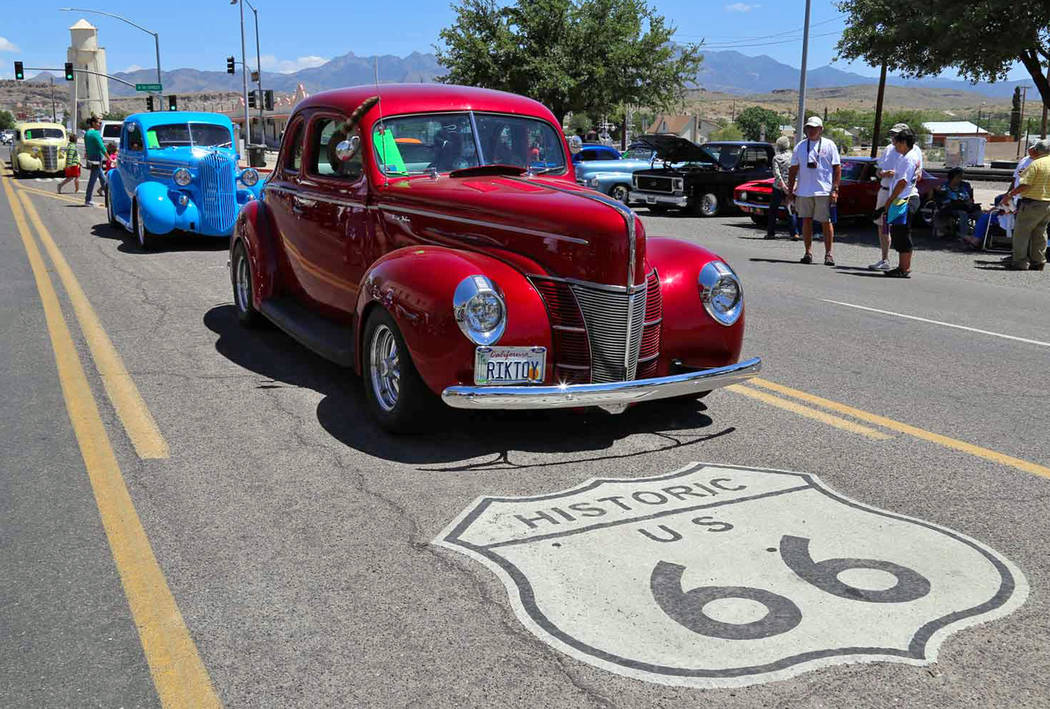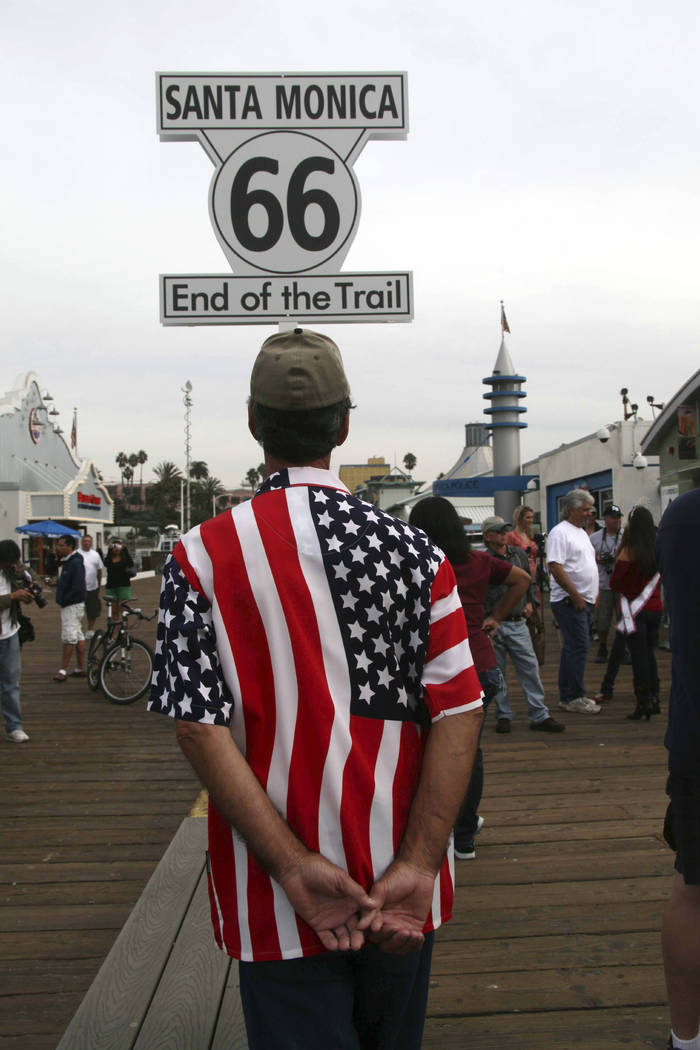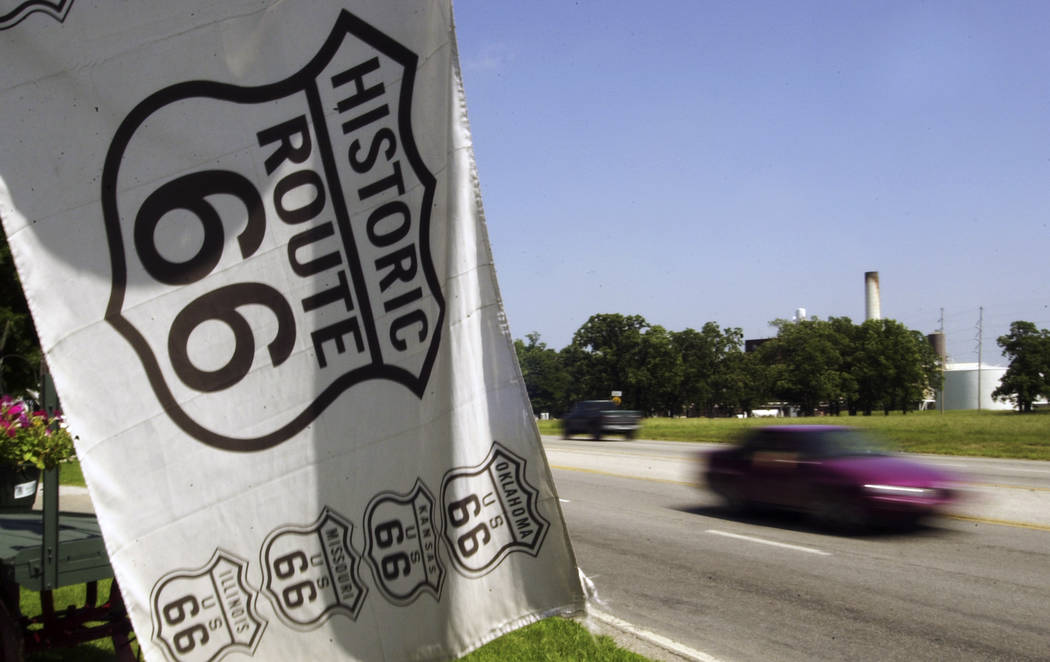New proposal looking to make Route 66 National Historic Trail
ALBUQUERQUE, N.M. — A new proposal moving through Congress seeks to designate Route 66, the highway that connected Chicago to Los Angeles and was once an economic driver for small towns across a post-World War II United States, as a National Historic Trail.
U.S. Sens. Tom Udall and Jim Inhofe announced this week the introduction of a bipartisan bill that would amend the National Trails System Act and include Route 66 in an effort to help revitalize cities and small towns that sit along the historic corridor.
The plan comes as cities and towns where the once busy Route 66 passed through have been working developing revitalization projects to rehabilitate aging buildings and landmarks to attract tourists.
Udall, a New Mexico Democrat, said in a statement that Route 66 symbolizes freedom that allowed motorists to visit mom-and-pop diners, small businesses, and scenic byways through eight states.
“Just as importantly, this bill would safeguard Route 66 as (a) cultural landmark, preserving its significance as the ‘Main Street of America’ for future generations of adventurers, migrants, hitchhikers, and tourists venturing westward,” Udall said.
Inhofe, an Oklahoma Republican, said it was important for Congress to try to preserve the historic road with such a deep history.
“Museums from Clinton to Elk City to Chandler highlight the impact of this road as a representation of American pioneer values,” Inhofe said.
The U.S. House of Representatives passed a similar bill in June.
Under the proposal, the National Park Service would administer Route 66 as a National Historic Trail and would help spur critical preservation efforts along the highway. The agency would award federal funds for preservation, development, and promotion.
According to the National Park Service, there are currently 19 designated National Historic Trails, including the Trail of Tears, the Lewis and Clark trail, and the Selma to Montgomery March in Alabama.
Route 66, also called the “Mother Road,” was born in 1926 after the Bureau of Public Roads launched the nation’s first federal highway system, bringing together existing local and state roads from Chicago through St. Louis to Los Angeles. Small towns opened shops, motels and gas stations to pump revenue into local economies just as the nation’s car culture took off.
Its importance even sparked a “Route 66” song performed by Nat King Cole, and later by the 1980s English electronic band Depeche Mode.
Route 66, one of the first roads in the U.S. highway system, spanned more than 2,400 miles (3,862 kilometers). It ran through eight states, connecting tourists with friendly diners in small towns.
The route changed a number of times through the years, and eventually became less of a destination thanks to new interstate highways.
It was decommissioned as a U.S. highway in 1985.
The World Monuments Fund in 2008 listed Route 66 on the “Watch List of 100 Most Endangered Sites.”































